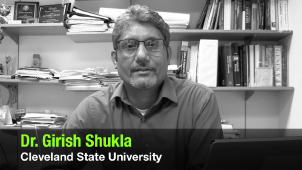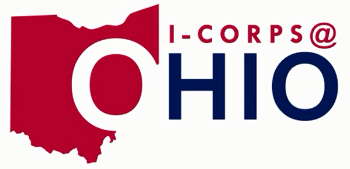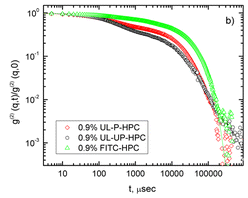 |
|
Professor Aaron Severson
Prof. Aaron Severson from the Center for Gene Regulation in Health and Disease (GRHD) and the Department of Biological, Geological and Environmental Sciences (BGES) in the College of Sciences and Health Professions (COSHP) received an AREA (R15) $349,200 grant from the NIH National Institute of General Medical Sciences for the project "Specification of meiotic cohesin function by divergent alpha-kleisin subunits." The goal of Prof. Severson's research is to increase our understanding of the cellular machinery that forms normal sperm and eggs, and how defects in this machinery lead to infertility. Due to errors during the formation of gametes (sperm and oocytes), an estimated one in three fertilized human eggs has too many or too few chromosomes; such errors are a leading cause of miscarriage and birth defects. Because errors similar to those that disrupt chromosomal inheritance during gamete formation also occur in many forms of cancer, the relevance of this research extends far beyond reproductive health.
Prof. Paula Chan joined Cleveland State in fall 2015 as an assistant professor of special education in the Department of Teacher Education, and is also a doctoral-level Board Certified Behavior Analyst. Prof. Chan received her doctoral degree from The Ohio State University and her master's degree from the University of South Florida. Prof. Chan's research focuses on improving post-school outcomes for adolescents with disabilities. For many students with disabilities, moving into adult roles can be challenging because they lose many of the supports and accommodations that were offered in their high school environments. Prof. Chan's research focuses on how to prepare students for this transition. As part of her research, Prof. Chan focuses on two major areas. The first area of research involves teaching students with behavior disorders to become active participants in developing their behavior assessments and behavior intervention plans. Students learn to accurately discuss their behavior issues, effectively communicate with adults, and advocate for their own needs. These skills improve the effectiveness of their behavior assessments and behavior intervention plans, and help students develop skills that promote their successful transition to adulthood. The second area of research explores how feedback can be used to improve skill development. As students develop skills to transition to adult roles, feedback is critical to provide them with information about how they are progressing toward their goals. Prof. Chan's research helps determine ways to enhance the effectiveness of feedback and to maximize student growth.
Featured Researcher Video Series - Girish Shukla
Research by Prof. Girish Shukla from the Center for Gene Regulation in Health and Disease (GRHD) and the Department of Biological, Geological and Environmental Sciences (BGES) in the College of Sciences and Health Professions (COSHP) is the focus of the latest installment of the Featured Researcher Video series. Prof. Shukla's research is in the area of prostate cancer, which takes the lives of nearly 28,000 American men every year. Prostate cancer is the most commonly diagnosed and second leading cause of cancer-related death in American males. Many hereditary factors and genes play pivotal roles in the development of prostate cancer and in the development of resistance to therapeutic measures. Prof. Shukla studies the intrinsic cellular factors that may be responsible for prostate cancer. The goal of his research is to elucidate the molecular and cellular mechanisms that promote the development of drug resistance and metastatic disease. His research program is supported by Department of Defense's (DoD) Prostate and Breast Cancer Research Programs and is aimed at identifying the small RNA molecules, or microRNAs, which are intrinsically produced in human cells and which suppress disease-promoting genes. The loss of these microRNAs facilitates cancer-promoting genetic pathways. By supplementing tumor-suppressing microRNA, Prof. Shukla's research team aims to target cancer cells in order to treat drug-resistant diseases. We encourage you to learn more about Professor Shukla's research and to take a look at our previous Featured Researcher Videos.
Myong-Hun Chang is a professor in the Department of Economics in the College of Liberal Arts and Social Sciences (CLASS). His specialization is in the area of theoretical industrial organization, with an emphasis on the game-theoretic and computational study of competitive interactions among strategically-motivated firms. Prof. Chang's current research focuses on modeling and analyzing the interactions among heterogeneous agents in complex economic and social systems. One of his most recent projects entails the construction of a computational model of industry evolution in which artificial industries are created and grown to maturity in silico. The firms in the model are adaptive in the sense that they conduct research and development to improve their production technologies based on their experiences. Prof. Chang studies the adaptive behavior of the firms and industries as they remain in a perennial state of flux due to persistent external shocks in their environments. The general model and a comprehensive analysis of the computational experiments are presented in Prof. Chang's book A Computational Model of Industry Dynamics (Routledge, 2015). Prof. Chang's current research also involves the computational modeling and analysis of large-scale social transformation. Prof. Chang and his collaborator, Joseph E. Harrington, Jr. of the University of Pennsylvania, investigate the dynamic process of social transformation through which social norms are established and replaced over time. This research entails the construction of a computational model of a social system in which a large population of heterogeneous agents makes decisions on whether to accept or reject certain norms in their local social networks. The experiments in this research require substantial computational resources, and so Prof. Chang is working with the High Performance Computing Cluster at the University of Pennsylvania to facilitate parallel processing of the social changes modeled in this research. All of Prof. Chang's research utilizes game-theoretic and computational modeling tools. His research has been supported by various internal grants from the Office of Research as well as an external grant from the National Science Foundation. He has also served on grant review panels for the NSF Human and Social Dynamics Program.
News from the Technology Transfer Office Gao Patent: The US Patent and Trademark Office has issued a notice of allowance to Prof. Zhiqiang Gao for his patent application, which is entitled "Extended Active Disturbance Rejection Controller." Prof. Gao's motion control technology has applications in multiple fields, including motor control and factory automation. The patent is part of the intellectual property licensed to LineStream Technologies. Technology Validation Start-up Fund (TVSF) of the Ohio Third Frontier: The purpose of the TVSF is to support economic development by funding Technology Transfer Office (TTO) submissions for commercial validation activities, and by providing early-stage funding for start-up or young companies. Phase 1 awards are up to $50,000 and require a one-to-one cost-share commitment from the University. Phase 2 awards are up to $150,000 for a start-up or young company that licenses University technology. The TTO has submitted the requisite qualification document which will allow the TTO to submit proposals on behalf of CSU faculty.
Start-Up Companies: I-Corps@Ohio is offered on a competitive basis to evaluate the commercial potential of the innovations of faculty and graduate students. In addition to receiving an award of $15,000, I-Corps@Ohio teams will develop scalable business models to attract seed, angel, and venture funding to support company formation and market entry. Team registration and executive summary submissions will be accepted from January 4th through February 7th. Applicants will then be selected to submit a formal proposal. For additional information please review the recently released RFP or contact the TTO.
USRA, DRA, FRD, and FSI Internal Funding The Office of Research is pleased to provide the following reminder for the 2016-2017 internal funding programs.
The DRA and FSI programs have significantly changed since last year and now allow summer salary. In order to assist in the preparation of successful applications, the evaluation forms that will be used to evaluate the proposals are included at the above web sites. For more information, please contact Joy Yard, 687-9364, j.yard@csuohio.edu, or Dan Simon, 687-5171, d.j.simon@csuohio.edu
The Innovation Portal is Now Live
The Office of Research has launched a new web site to promote the University's many forms of innovation-related practices, initiatives, and opportunities. The site showcases technology transfer, entrepreneurship, collaborative workspaces, and more. By providing a virtual location for all of the innovation-related activities at CSU, the site will facilitate better communication with CSU partners, visitors, current and prospective faculty and students, and other members of the community. Please visit http://www.csuohio.edu/innovation/ for more information.
Undergraduate Research with
A paper co-authored by Prof. Kiril Streletzky, Fluorescent Labeling Can Alter Polymer Solution Dynamics, has been published in Macromolecules, which is one of the leading journals in polymer science with an impact factor of 5.8. Prof. Streletzky is an associate professor in the Physics Department in the College of Sciences and Health Professions (COSHP). The first author on the paper is Ryan McDonough, whose participation in CSU's Undergraduate Summer Research Award Program led to the publication. Ryan earned bachelor's degrees from CSU in philosophy and chemistry, and an honor's degree in physics, and is now a researcher at the NASA Glenn Research Center.
Engaging and Collaborating with CLASS The Office of Research has begun regular meetings with faculty from the College of Liberal Arts and Social Sciences (CLASS). An advisory committee of 12 diverse CLASS faculty members is providing guidance, direction, and suggestions to the Office of Research regarding the enhancement of scholarship in the liberal arts and social sciences. In addition, the Office of Research is working with CLASS on an NSF proposal to enhance research and scholarship collaborations between engineering faculty and CLASS faculty. _____________________________________________________________________________ Please share with us important news or updates on your research, scholarly, or creative activities. Updates may be related to a paper that has been accepted for publication in a high-impact journal, a book you've just published, your work that will be exhibited at a prominent institution, or other updates you wish to share with our office. Send details to j.yard@csuohio.edu and d.j.simon@csuohio.edu. _____________________________________________________________________________
This newsletter is compiled and published by |
||||||||||||||||||||||||||||||
|
||||||||||||||||||||||||||||||
 | ||||||||||||||||||||||||||||||
|
© 2016 Office of Research - Cleveland State University |









